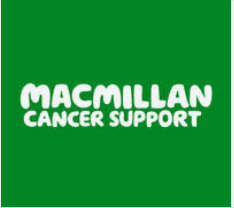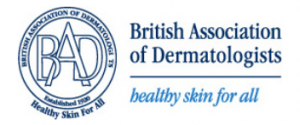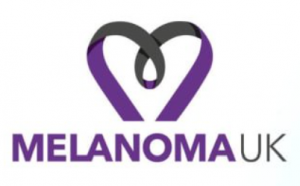This page gives you information about:
- Who we are
- The ways we test for and diagnose skin cancer
- The different ways we treat it
- The support that we have on offer
Who are we
At The Dudley Group NHS Foundation Trust we diagnose and treat Melanomas, Squamous Cell Carcinomas (SCCs), Basal Cell Carcinomas (BCCs) and rare skin cancers in Dudley and wider area. We also work very closely with New Cross Hospital who provide our oncology service.
We have a multi-disciplinary team (MDT) of experts which includes Consultant Plastic Surgeons, Consultant Dermatologists, Consultant Histopathologists (who interpret biopsies), a Consultant Radiologist (who interprets X-rays and scans), Consultant Oncologists (who provide cancer treatments), Clinical Nurse Specialists and an MDT Co-ordinator.
The team meets weekly to discuss the most appropriate care for our patients based on information from examinations, biopsies, scans and other investigations.
We discuss all new skin cancer patients and those patients whose condition has changed.
| Name | Role |
| Mr Mohan | Consultant Plastic Surgeon |
| Mr Wharton | Consultant Plastic Surgeon |
| Mr Ali | Consultant Plastic Surgeon |
| Mr Bella | Consultant Plastic Surgeon |
| Ms Athanasiadou | Consultant Plastic Surgeon |
| Mr Sarhadi | Consultant Plastic Surgeon |
| Dr Frankiewicz | Consultant Dermatologist |
| Dr Mehta | Consultant Dermatologist |
| Dr Madhogaria | Consultant Dermatologist |
| Dr Verpetinske | Consultant Dermatologist |
| Dr Al-Rusan | Consultant Dermatologist |
| Dr Grumett | Consultant Medical Oncologist |
| Dr Joseph | Consultant Clinical Oncologist |
| Dr Muc | Consultant Histopathologist |
| Dr Pugh | Consultant Histopathologist |
| Dr Cundell | Consultant Histopathologist |
| Dr Mahalingam | Consultant Histopathologist |
| Dr Hall | Consultant Radiologist |
| CNS Lucy Smith | Skin Cancer Clinical Nurse Specialist |
| ANP Jenny Horton | Plastic Surgery Advanced Nurse Practitioner |
| Lindsay Hughes | MDT Co-ordinator |
What we do
- Quick diagnosis
- Offer the best treatment options
- Patient information and counselling
- Complex surgery
- Referral to other centres if further treatment needed
What happens when you see us
Being referred to us
It’s really important that skin cancer such as melanoma is diagnosed early to stop it spreading. You will be referred to the hospital if your GP spots something that needs investigation. Our consultant skin specialists (Plastic Surgeons and Dermatologists) will see you within two weeks at the rapid access clinic if your GP suspects SCC or melanoma.
Specialist examination
The doctor will examine your skin. It’s possible that the cancer can be spotted at this examination. Often the specialist will use a magnifying glass or hand held dermatoscope to look more closely at the lesion.
Biopsy
The doctor removes part or the entire lesion and sends it to the laboratory. It is analysed under a microscope by a pathologist. This is the only way to 100% identify any skin cancer cells.
Further tests
Sometimes we need to do further tests to see if the cancer has spread. The doctor will probably feel the lymph glands close to the cancer to see if any of them are enlarged. These investigations could include:
Ultrasound – an ultrasound scan uses sound waves to make up a picture of an area inside the body. It is a painless test and only takes a few minutes. It can be used to check the lymph nodes if you have a skin cancer. If the ultrasound scan of the lymph nodes is abnormal, the doctor will do a fine needle aspiration (FNA). The doctor puts a needle into the lymph node and withdraws a sample of cells into the syringe. A doctor who specializes in studying cells (pathologist) then looks at the sample under a microscope to see if there are any skin cancer cells.
CT – a CT scan makes up a 3D picture of the inside of the body. The 3D picture is built up using lots of detailed x-rays taken by the CT scanner. It uses a small amount of radiation. This is very unlikely to harm you. It will not harm anyone you come into contact with.
MRI – magnetic resonance imaging (MRI) is a type of scan that uses strong magnetic fields and radio waves to produce detailed images of the inside of the body. It uses no radiation.
What happens next?
Your test results are discussed by the multi-disciplinary team (MDT). They decide the best treatment path if cancer is discovered. You will be consulted fully so that you play a role in whatever treatment you receive. If you’re diagnosed with skin cancer your GP will receive a notification within 24 hours.
Treatments for skin cancer include:
Surgery – most skin cancers are treated with surgery. It is usually a minor procedure and done under local anaesthetic. We have surgeons trained in advanced skin surgery for more complex operations such as grafts, flaps, sentinel lymph node biopsy and lymph node dissections for more advanced disease.
- A wide local excision is sometimes done. This removes more tissue from the area where the skin cancer was. The aim is to remove all the skin cancer cells and to reduce the chance of the skin cancer coming back. Your doctor will talk to you about how much skin needs to be removed.
- A skin graft is a layer of skin that is taken from another part of the body and placed over the area where the skin cancer was removed. The place where the skin is taken from is called the donor site. The place where it is moved to is called the grafted area. The amount of skin that is taken depends on the size of the area to be covered.
- A skin flap is a slightly thicker layer of skin than a graft. It is taken from an area very close to where the skin cancer was removed. A surgeon cuts the flap away, but leaves it partly connected, so it still has a blood supply. They then move the flap over the wound and stitch it in place.
- If you have melanoma, a sentinel lymph node biopsy (SLNB) is a way of checking the lymph nodes closest to the melanoma. Your doctor might offer an SLNB if your melanoma is a certain stage. An SLNB is not suitable for everyone. Your surgeon or specialist nurse will explain if an SLNB is right for you.
- A lymph node clearance, also known as a ‘lymph node dissection’ or a ‘lymphadenectomy’, involves removal of all the lymph nodes and possible tumour-containing tissue from either the armpit region or groin region. This is normally done for more advanced skin cancers and involves a stay in hospital.
Radiotherapy – this uses radio waves to kill cancer cells. It is often used when the cancer is difficult to operate on or if we don’t feel that all of it has been removed. It can also be used with surgery (adjuvant treatment). Patients are referred to New Cross Hospital for this treatment. Radiotherapy uses high-energy rays to destroy the cancer cells, while doing as little harm as possible to normal cells. It works well for treating certain skin cancers such as SCC’s and BCC’s.
Photodynamic therapy (PDT) – PDT is mainly used to treat pre-skin cancer. It involves cream application and red light treatment to individual lesions. It can be done during the day; no overnight stay is required.
Targeted therapy – there are many different types of targeted therapy. Targeted therapy uses drugs to find and attack cancer cells. Each type targets something in or around the cancer cell that is helping it grow and survive. This treatment can be provided by New Cross Hospital.
Immunotherapy – the immune system protects the body against illness and infection. Immunotherapies are treatments that use the immune system to find and attack cancer cells. This treatment can be provided by New Cross Hospital.
The support that we have on offer
Specialist nurse support
All patients with a confirmed melanoma will be seen by a key worker called a specialist nurse at the time of their diagnosis. They will spend time with you and provide their contact details if you have any concerns between your appointments. You will see your key worker at different points throughout the treatment pathway finishing with a treatment summary session when treatment is complete. Holistic needs assessments (HNA) will be offered, sun safety advice and access to the skin cancer support group.
If needed referrals can be made to:
- Lymphoedema services
- Physiotherapy
- Orthotics
- The White House Cancer Support
- Macmillan Citizens Advice Bureau
- Psychology services
- The living with and beyond cancer team including health and wellbeing events
Patients with other types of skin cancer will be provided with written information and the contact details of the specialist nurse at diagnosis.
Clinical Trials
There are currently no clinical trials running at Russell’s Hall Hospital but if you are interested then speak to your specialist nurse who can find out some information for you.
Patient Information Leaflets
- BCC
- Bowens disease
- Seb K
- SCC
- The Skin Cancer MDT
- AK
- Advice after having a LA
- CT scan
- Info for patients undergoing surgery during the coronavirus pandemic
- Minor skin surgery or cautery using LA-aftercare advice
- Psychology services for people with cancer and their families
- Recovery after a GA or sedation
- Skin Biopsy using LA
- Skin graft-aftercare information about donor sites
Videos
- Melanoma facts
- ABCDE and F guide to detect skin cancer and melanoma
- Checking your skin
- Staying safe in the sun
- Fun in the sun
Further support
Click on the images below to visit the websites















